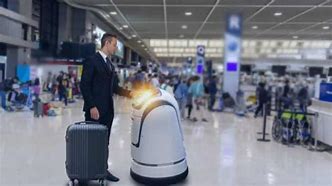Dubai: The ‘Future of Work’ report was released by Smart Dubai at GITEX Technology Week 2020. It is a study that explores future possibilities of work; the potential developments expected to transform the nature of jobs; the mindset shifts that are driving these possibilities; and evolving structural changes that redefine the human-workplace dynamic.
Under the theme ‘Inspiring New Realities’, Smart Dubai’s pavilion in the 40th edition of GITEX Technology Week held at the Dubai World Trade Centre from December 6-10, 2020, brings together 20 government entities to showcase advanced solutions being built by Dubai Government to accelerate the city’s digital transformation.
Abdullah Ali bin Zayed Al Falasi, Director-General of the Dubai Government Human Resources Department, DGHR, threw light on Dubai tackling challenges. He stressed the role of institutions in forecasting the future of the Dubai Future Foundation. He also said that Smart Dubai played an important and distinct role with its ‘Future of Work’ report.” He further said that there must be a system to provide opportunities for the acquisition and development of skills and also noted that a growing self-employment economy should be supported by the authorities.
Younus Al Nasser, Assistant Director-General of Smart Dubai, and CEO of the Dubai Data Establishment, said that Smart Dubai is entrusted with a mission to spearhead and expand Dubai’s digital transformation and lead the Emirate’s efforts to embrace promising and advanced new technologies to build a pioneering, full-fledged smart city. He added that they are the government entity working to establish Dubai as the smartest and happiest city on Earth and also exploring the vision of future labor market.
The ‘Future of Work’ report covers five main areas: the evolution of work, the future possibilities of work, the future mindset of work, and the future ways of work, in addition to considerations and questions about the future of work. The report begins with an overview of past industrial revolutions and their effect on work and humanity as a whole. Each revolution was initially feared and faced resistance but was eventually welcomed as they had propelled the human race forward.
Future Possibilities of Work The ‘Future of Work’ report explored how internet has helped talented individuals eliminate middlemen or the preferences of production houses, distribution companies, or networks. The report also explores the Sharing Economy, where the internet paved the way for the concept of peer-to-peer sharing and benefitting from each other’s underutilized assets, and potentially even monetising them. The report also talks about the gig economy, a free-market system where organisations hire independent workers for short-term commitments. These are the new and emerging possibilities of work that people today explore to make a living while balancing a healthy lifestyle.
Shifting attitudes towards work in general, where stable employment, safe career paths, and the concept of a ‘job for life’ have lost their allure, especially among millennials and Gen-Z, are also noted in the Future Mindset of Work The ‘Future of Work’ report. Also, people increasingly look forward to retirement in order to continue contributing to society in a meaningful way. Remote work had been gaining popularity and in 2020, following the outbreak of COVID-19, it became the norm as governments around the world implemented lockdowns and restrictions to curb the spread of the virus. Moreover, with digital platforms like UltiPro, Hubstaff, and Fiverr, Technology has also allowed business to source their talent globally without concerns about the logistics of hiring and onboarding.
The ‘Future of Work’ report concludes with a section that addresses for various stakeholders in the labor market going forward, including governments, organizations, the education sector, employers, and companies.
Source: WAM





























